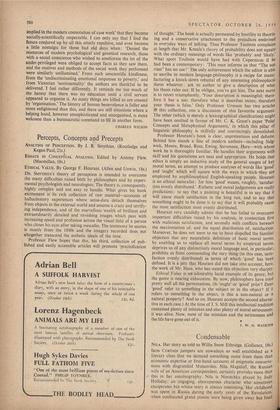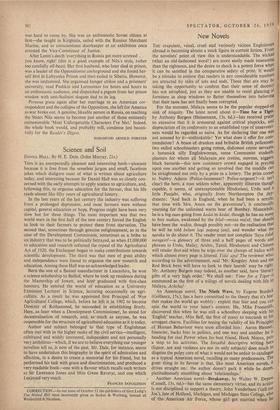Condensable
NILA. Her story as told to Willie Snow Ethridge. (Gollancz, 18s.) IRON CURTAIN jumpers are nowadays so well established as a literary class that we demand something more from them than economic expertise or first-hand accounts of enigmatic conversa- tions with disgruntled Muscovites. Nila Magidoff, the Russian wife of an American correspondent, certainly provides more than this in her autobiography. Nila is Ninotchka played by Judy Holliday; an engaging, obstreperous character who sometimes exasperates but whose story is always interesting. Her childhood was spent in Russia during the early years of the Revolution. when confiscated grand pianos were being given away but food
was. hard to come by. She was an enthusiastic Soviet citizen at first—she taught in Kirghizia, sailed with the Russian Merchant Marine, and as conscientious doorkeeper at an exhibition once arrested the Vice-ComMissar of Justice.
After Lenin's death 'everything in Russia got more screwed . . you know, tight' (this is a good example of .Nila's style, rather too carefully off-beat). Her first husband, who later died in prison, was a leader of the Oppositionist underground and she found her- Self first in Lubyanka Prison and then exiled in Siberia. However, she was undaunted. She organised hunger strikes and a prisoners' university, read Pushkin and Lermontov for hours and hours to an enthusiastic audience, and dispatched a pigeon from her prison window with anti-Stalinist slogans tied to its leg.
Persona grata again after her marriage to an .American cor- respondent and the collapse of the Opposition, she left for America as war broke out. A genuine, likeable person in Russia, on reaching the States Nila seems to become just another of those eminently unmemorable Most Unforgettable Characters I've Met.' Indeed, the whole book would, and probably will, condense just beauti- fully for the Reader's Digest.
ROSAMUND ARNOLD FORSTER











































 Previous page
Previous page